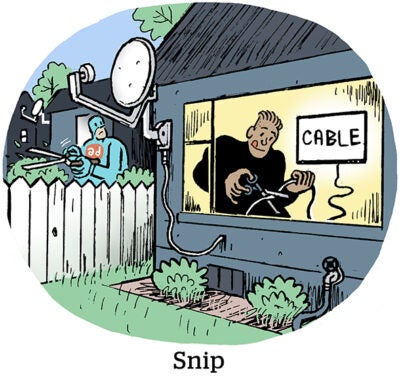
Right here’s as we speak’s AdExchanger.com information round-up… Need it by electronic mail? Join right here.
Podded Vegetation
Podcasters have a brand new trick for juicing downloads, Bloomberg reviews.
The thought is to serve cellular in-game reward advertisements that gamers click on to gather some digital loot. In trade, the consumer downloads a podcast episode within the background.
It’s a win-win-win for everybody besides the podcast advertiser. Sport builders want the advert income, significantly from non-gaming apps. (Efficient in-game advert campaigns for different video games have the undesirable impact of channeling gamers to rival apps.) Customers get the in-game bennie. And podcasters win massive, as a result of downloads are their key metric.
Most podcast advert offers hinge on downloads, since precise numbers and listening conduct – like, did the listener exit earlier than the sponsor message? – aren’t disclosed by the platforms. Additionally, podcast advertisements are usually not programmatic. The advert downloads with the episode; advertisements aren’t served in actual time. So even when the podcast is deleted with out ever being opened, the advert counts.
Discovery is a legit drawback for podcasters. However this can be a cynical metric ploy.
“Don’t depend on [in-game ads] completely as a result of in some unspecified time in the future you’re going to need as a lot natural and genuine development as you will get,” says podcaster Scott Saslov, who Bloomberg noticed utilizing the in-game advert tactic. Additionally of word: Podcasters aren’t the one ones juicing viewers numbers with in-game reward advertisements. Digital publishers additionally use the tactic to spice up visitors.
Programmatic Plus
Viewers concentrating on and measurement for tv is a ache within the behind for digital entrepreneurs. Linear TV stock isn’t usually bought like digital media (aka programmatically).
OpenAP, which is collectively owned by NBCUniversal, Paramount, Warner Bros. Discovery and Fox, rolled out OpenID final 12 months to assist TV programmers promote stock based mostly on buys throughout a number of networks. This week, OpenAP introduced a programmatic ecosystem extension with three SSPs (Magnite, Comcast’s FreeWheel and Microsoft’s Xandr Monetize).
GroupM is the primary company to signal on.
However convincing consumers to undertake new identification options isn’t any stroll within the park.
Advertisers’ largest ache level with TV is the shortage of a constant viewers identification throughout channels as a result of broadcasters promote most of their stock straight, not like digital publishers, OpenAP CMO Brittany Slattery tells AdExchanger.
“Enabling OpenID programmatically unifies endpoints throughout linear and digital supply, and permits for deduplicated attain and frequency measurement,” she says.
The principle worth prop of programmatic is to scale viewers buys throughout an expanse of stock. Consumers can now embrace OpenID audiences throughout their different digital and linear buys once they purchase by way of their DSP, Slattery says.
Priva-Seeing Inexperienced
Privateness attorneys have had a bonanza these days. The California Gold Rush doesn’t maintain a candle to it. And there’s nonetheless gold in them thar hills.
The most recent cascade of enterprise comes courtesy of the California Legal professional Normal, who reached a $1.2 million settlement with Sephora, partly due to Sephora’s advertising and marketing information functions and the way it dealt with (or did not deal with) international opt-out requests.
The settlement served as a warning shot to different manufacturers that CCPA enforcement is occurring. Many firms didn’t adjust to CCPA in 2020 as a result of they begrudge its definition of a knowledge “sale,” The Wall Road Journal reviews. California defines a sale as any use of information by a 3rd get together, even when not a cash-for-data transaction. Corporations dragged their ft on telling clients that they “promote” their information in consent notices, as a result of shoppers hate that phrasing. Small and even giant firms throughout ecommerce, media and martech might not have anticipated the highlight would fall on them. Governments go for Google, Fb and Amazon, possibly spice issues up with Apple or Microsoft. However Sephora?
Now any model with electronic mail sign-ups or first-party information used to focus on advertisements should buckle down. Google received’t be the goal each time, and clicking all the proper checkboxes in Google Advertising Platform received’t reduce it, both.
However Wait, There’s Extra!
The preliminary outcomes are in for Google Chrome’s FLEDGE trial. [Adweek]
Why Kochava says it doesn’t wish to settle with the FTC. [Marketing Brew]
McKinsey: ‘When you’re going to construct one thing from scratch, this may be pretty much as good a time as in a decade.’ [blog]
Amazon continues to be determining the right way to value its TV stock. [Insider]
TripleLift launches in-show advert spots for related TV. [release]
You’re Employed!
Crossmedia faucets Ram Singh as chief efficiency media officer. [release]

